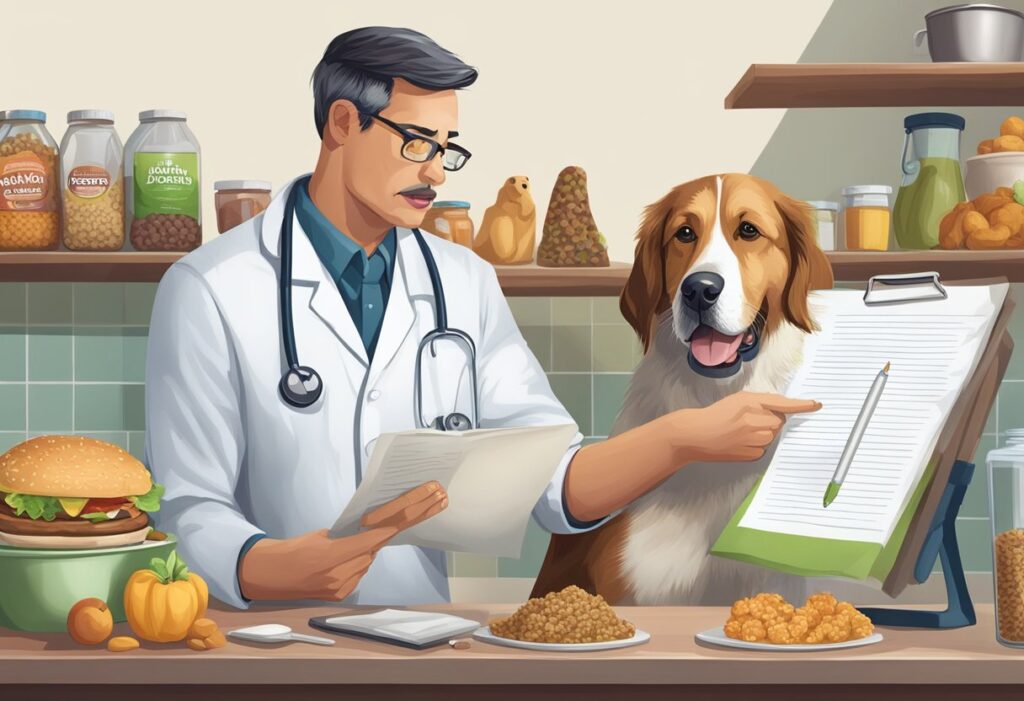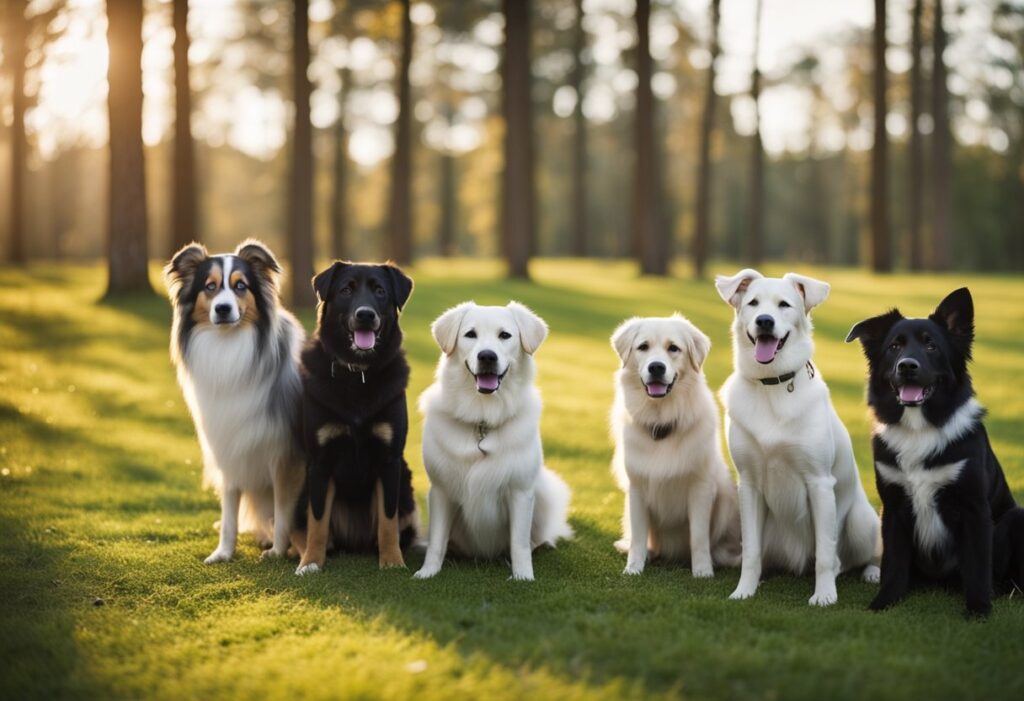Many dog owners may not realize that certain common foods can pose serious health risks to their pets. It is essential for them to be aware of what can be harmful. A veterinarian has identified seven foods that should be avoided to keep dogs safe and healthy.
Understanding which foods can be toxic is a crucial part of responsible pet ownership. By learning about these dangers, dog owners can make informed decisions about their pets’ diets. Awareness and education are key to preventing adverse reactions and ensuring a long, healthy life for dogs.
1) Chocolate
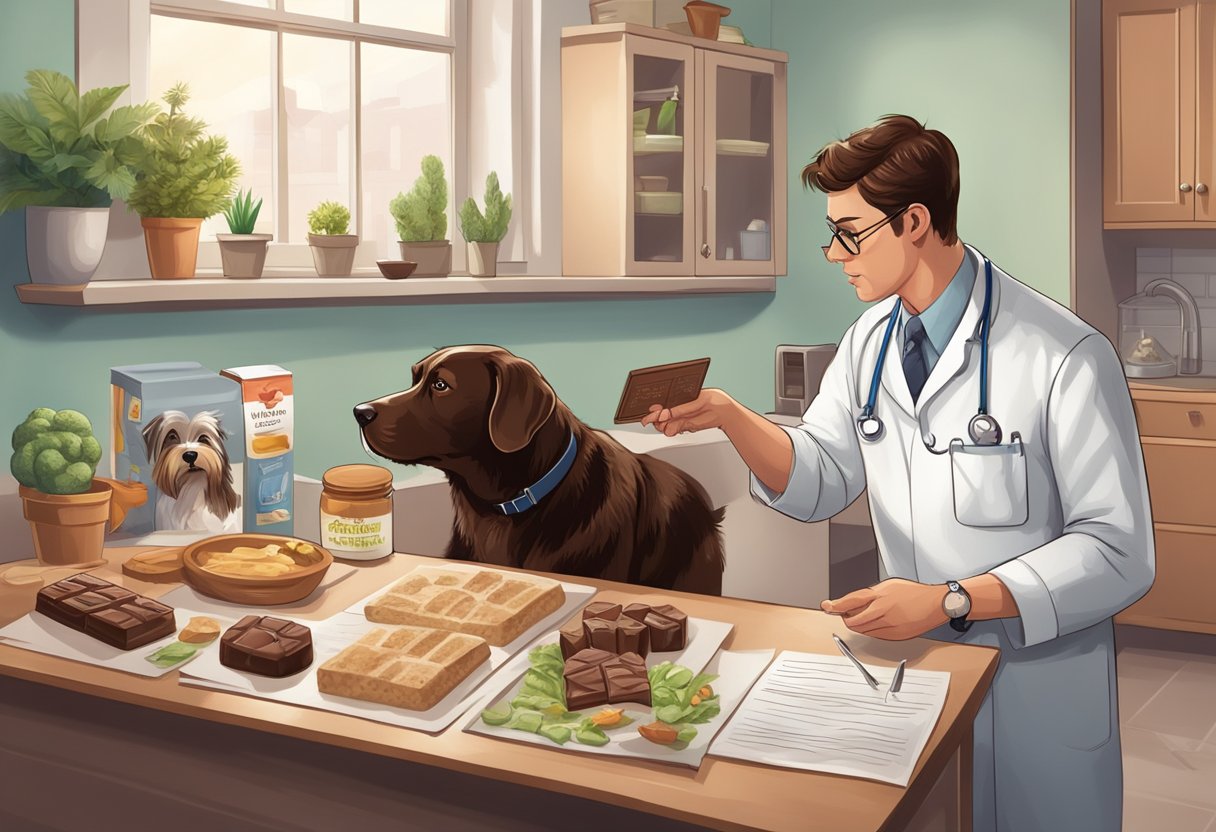
Chocolate contains theobromine, a compound toxic to dogs. Unlike humans, dogs metabolize it much more slowly, which can lead to serious health issues.
The severity of chocolate toxicity depends on the type and amount ingested. Dark chocolate and baking chocolate contain higher levels of theobromine than milk chocolate. Even small amounts can be harmful.
Common symptoms of chocolate poisoning in dogs include vomiting, diarrhea, increased heart rate, and restlessness. In severe cases, seizures and even death can occur.
Pet owners should keep all chocolate products well out of reach. If a dog consumes chocolate, it’s important to seek veterinary care immediately. Prompt treatment can make a significant difference in the outcome.
2) Grapes and raisins
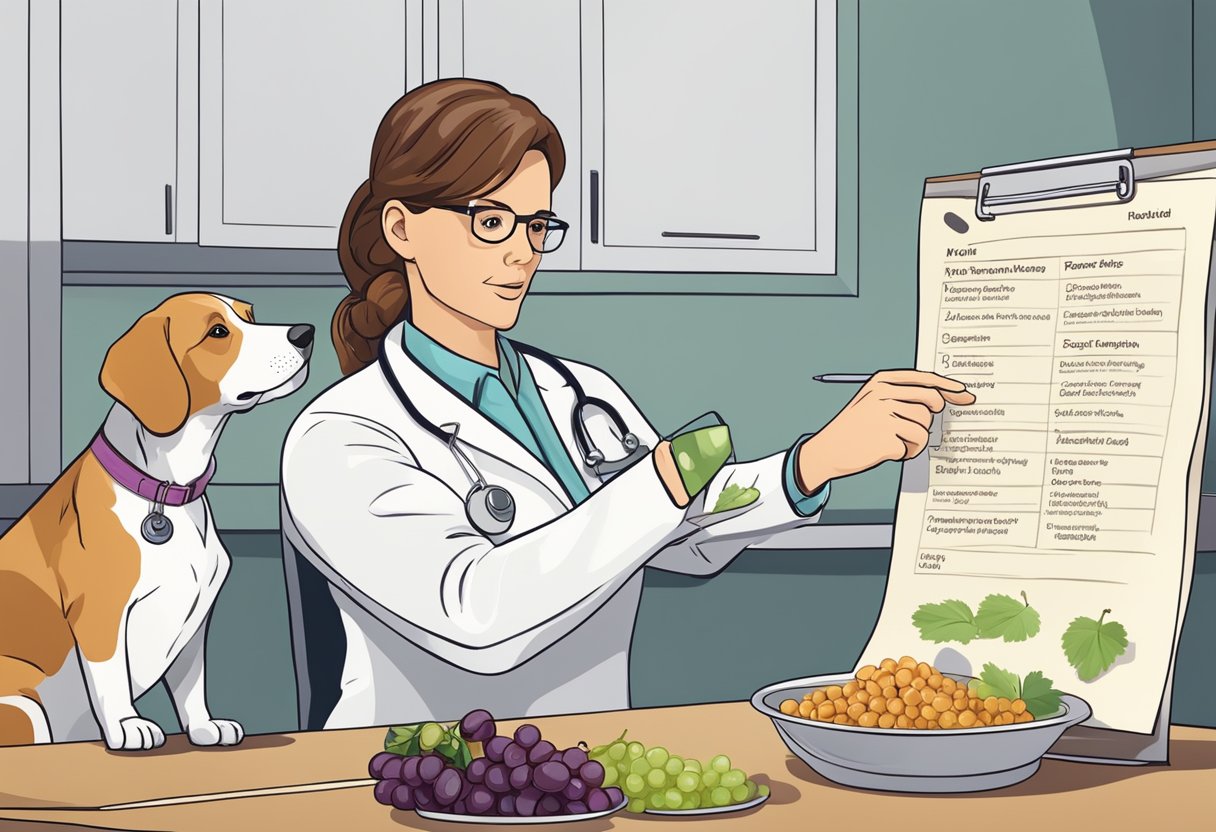
Grapes and raisins are known to be toxic to dogs. Even small amounts can lead to serious health issues, including kidney failure. The exact substance that causes the toxicity is still unknown.
Symptoms of grape or raisin ingestion may include vomiting, diarrhea, and lethargy. In some cases, these symptoms can progress to more severe conditions like abdominal pain or decreased appetite.
Immediate veterinary attention is crucial if a dog consumes grapes or raisins. Treatment may involve inducing vomiting and providing supportive care to prevent further complications.
Pet owners should be vigilant and keep these fruits out of reach to ensure their dog’s safety. It is better to choose dog-safe treats that don’t pose a risk to health.
3) Onions and garlic
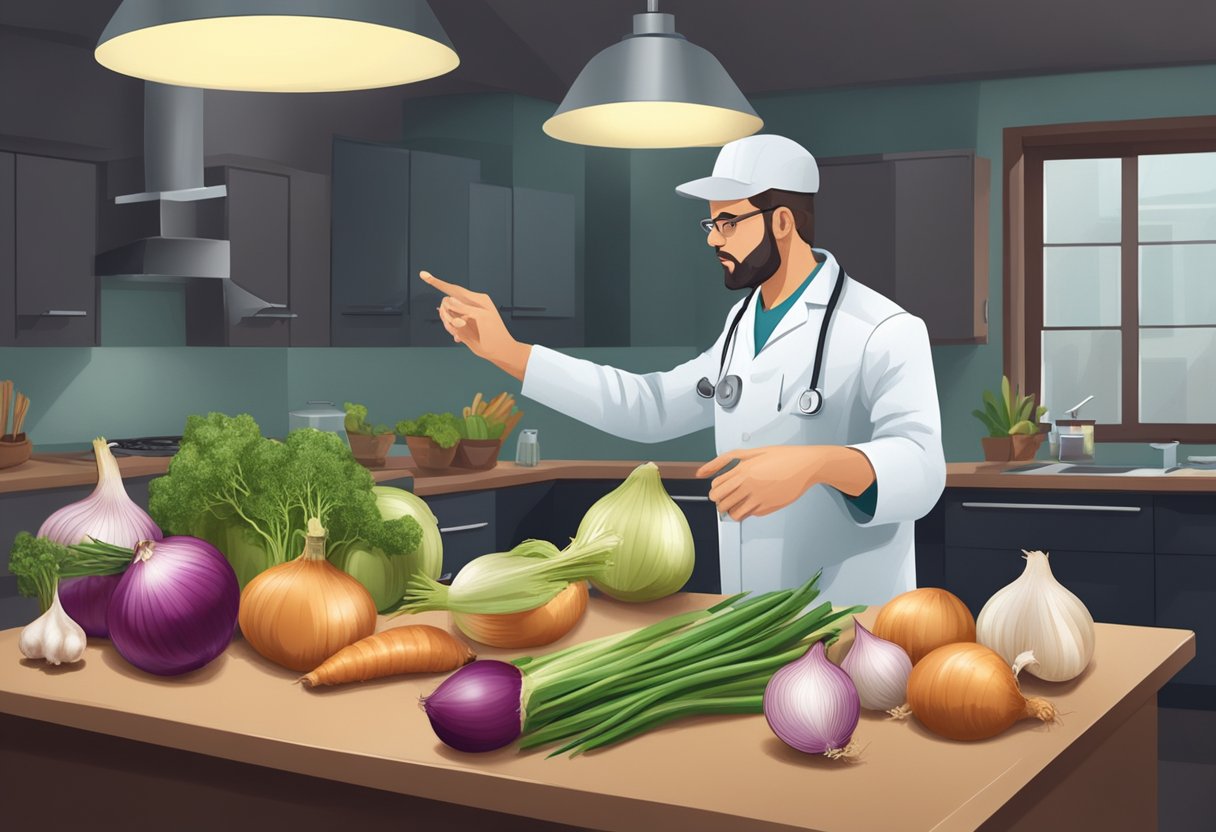
Onions and garlic contain compounds that can be harmful to dogs. These substances can lead to oxidative damage to red blood cells, resulting in hemolytic anemia.
Even small amounts can pose a risk. Symptoms may not appear immediately, making it essential for pet owners to monitor their dogs for signs of illness after consumption.
Common signs include weakness, lethargy, and gastrointestinal upset. If a dog consumes onions or garlic, seeking veterinary care promptly is crucial.
Cooked or raw forms of these foods are both dangerous. Pet owners should avoid giving any food containing onions or garlic to their dogs to ensure their safety.
4) Avocados
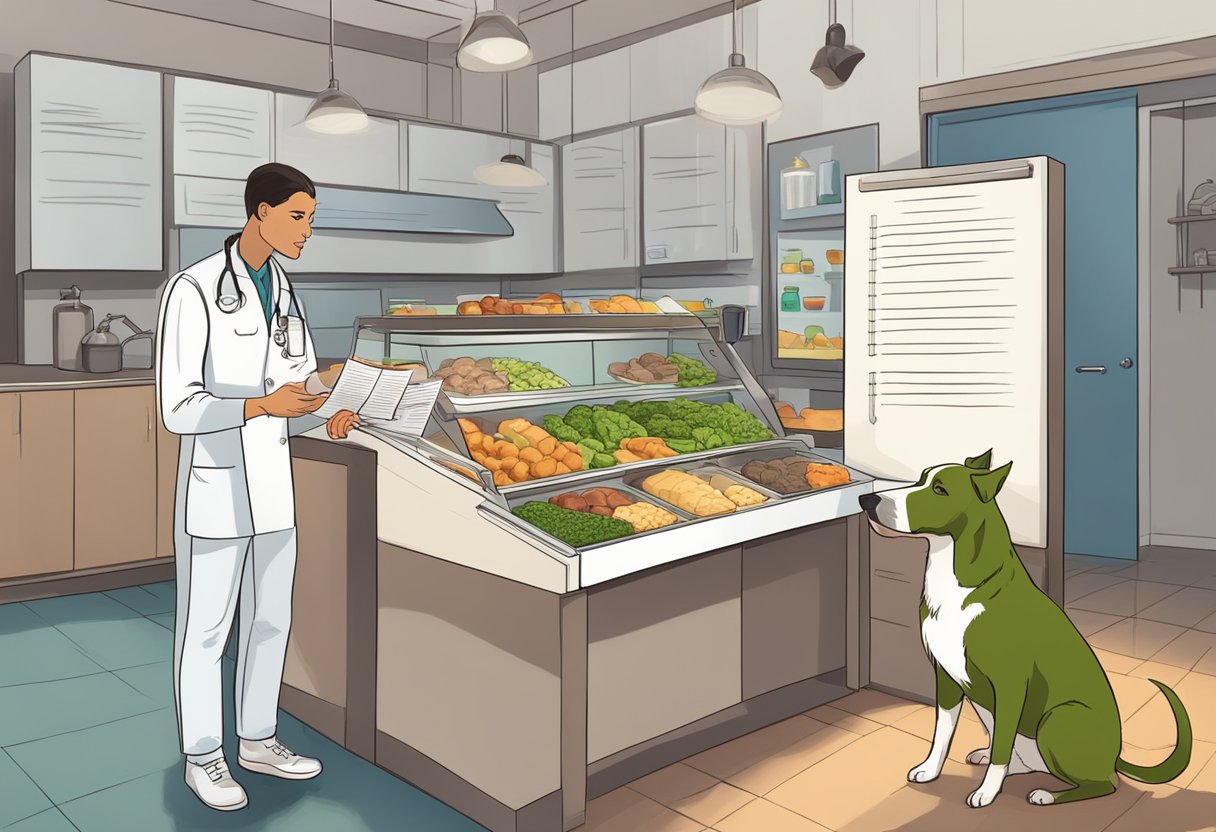
Avocados contain a substance called persin, which can be toxic to dogs. While the amount of persin varies in different parts of the avocado, the flesh, skin, and pit can all pose risks.
Ingesting avocados may lead to vomiting and diarrhea in dogs. In severe cases, it can result in more serious health issues.
Pet owners should be cautious and avoid giving avocados to their dogs. Small amounts may not lead to significant harm, but it’s better to exclude it from their diet entirely.
5) Macadamia nuts
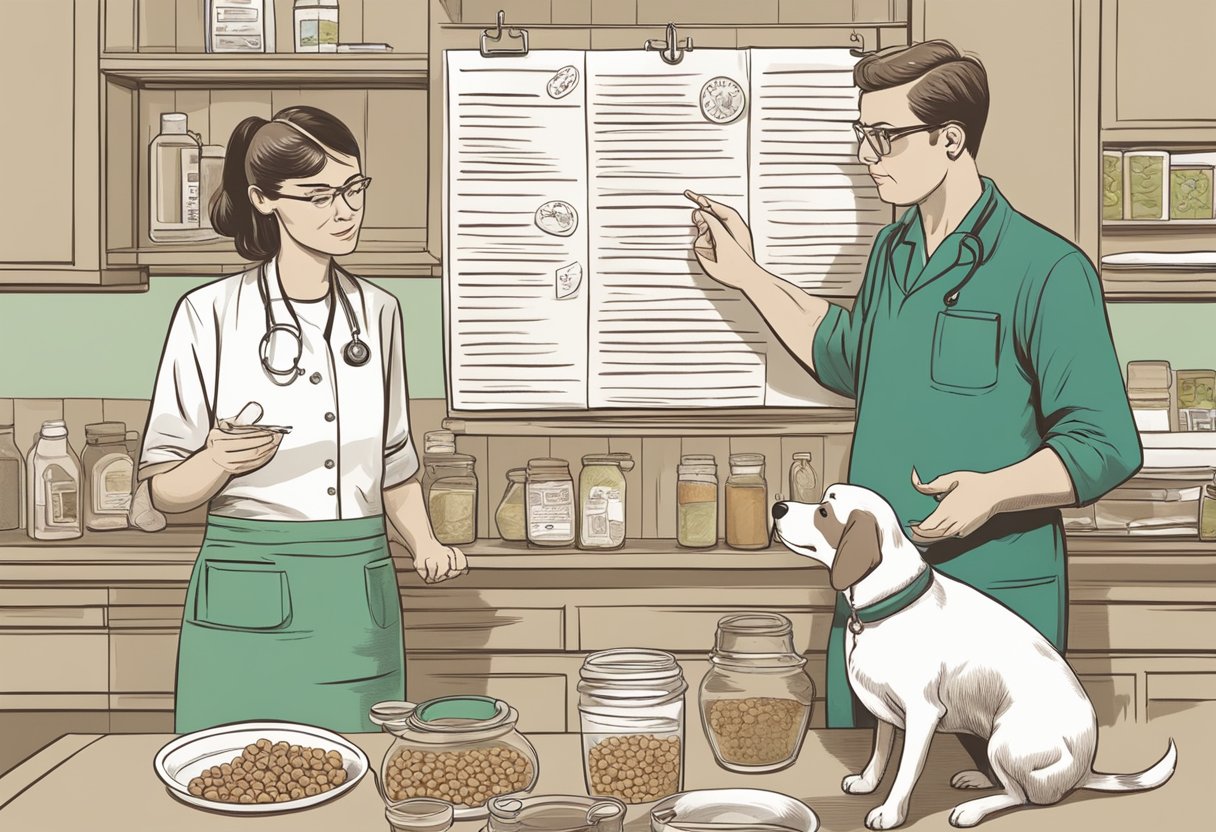
Macadamia nuts are toxic to dogs, even in small quantities. Consumption can lead to symptoms such as lethargy, vomiting, increased heart rate, and tremors.
The exact reason why these nuts are harmful remains unclear. However, even a small amount can cause adverse reactions in dogs of any size.
Pet owners should ensure these nuts are stored safely out of their pets’ reach. If a dog ingests macadamia nuts, immediate veterinary care is recommended to minimize the risk of severe symptoms.
Awareness of this danger can help prevent accidental ingestion. Proper education is vital for dog owners to keep their pets safe from harmful foods.
6) Xylitol (found in sugar-free gum)
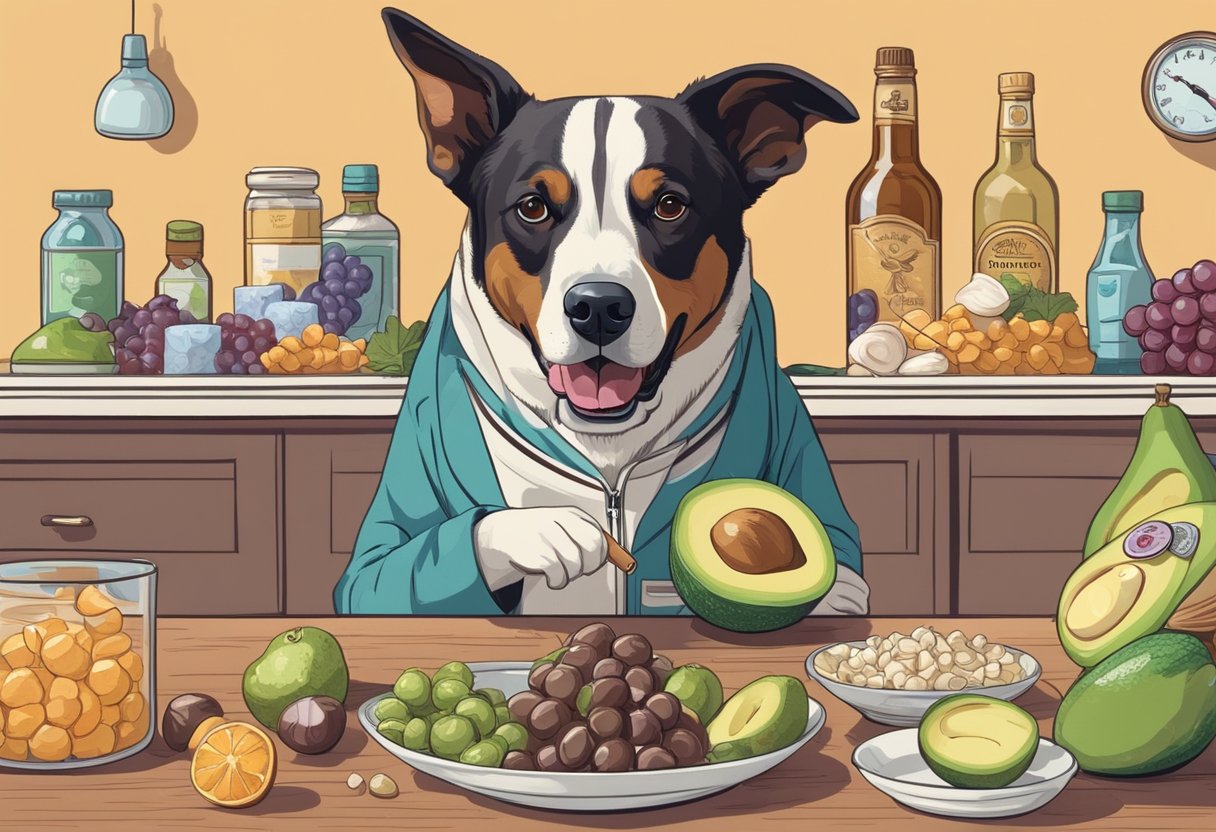
Xylitol is a sweetener commonly found in sugar-free gum and various other products. It is safe for human consumption but highly toxic to dogs.
When ingested by dogs, xylitol can lead to severe health issues, including a rapid drop in blood sugar levels. This condition, known as hypoglycemia, can cause symptoms such as vomiting, lethargy, and seizures.
Additionally, xylitol can cause liver damage in dogs, which may be fatal if not treated promptly. Even small amounts can be dangerous, so pet owners should keep products containing xylitol out of reach.
If a dog ingests xylitol, immediate veterinary attention is necessary. Early intervention can significantly improve the chances of a full recovery.
7) Alcohol
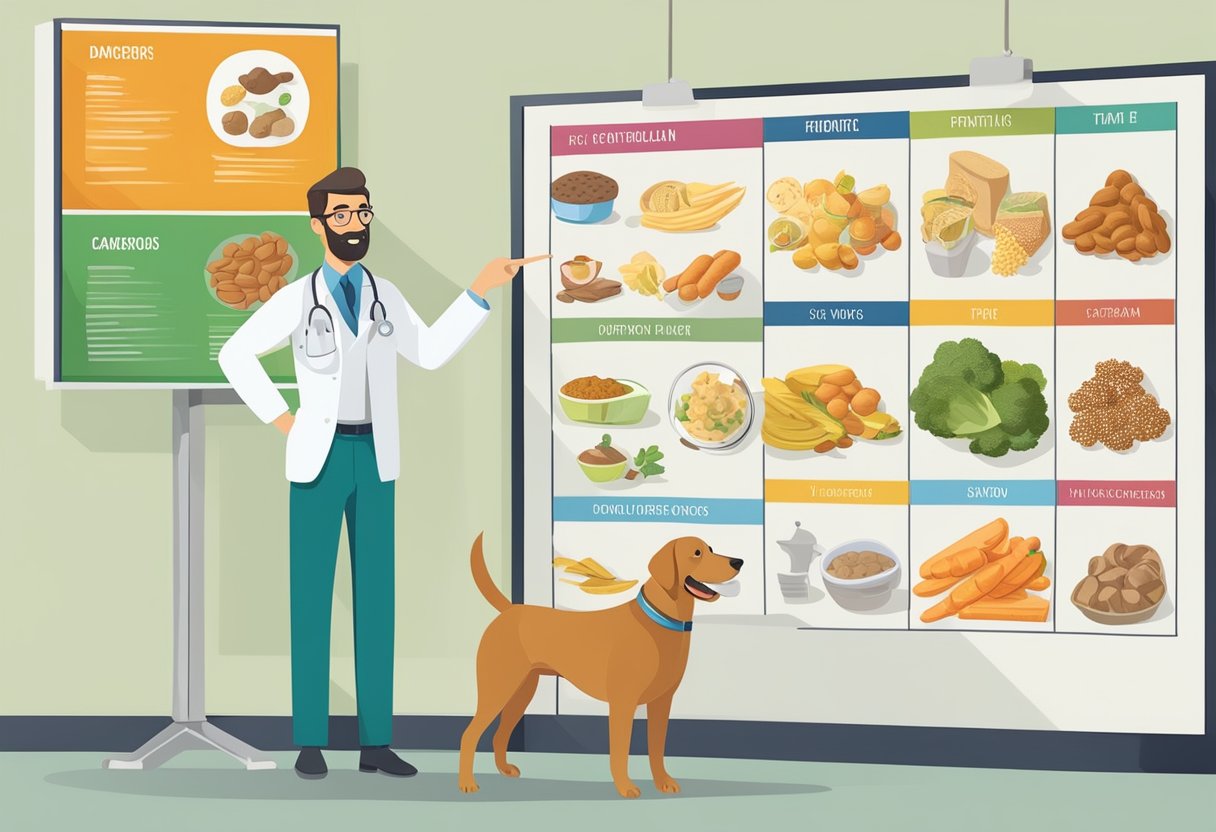
Alcohol is highly toxic to dogs. Even small amounts can lead to serious health issues.
Dogs metabolize alcohol differently than humans. This can result in symptoms like vomiting, impaired coordination, and even difficulty breathing.
In severe cases, consuming alcohol can lead to comas or death. Pet owners should be vigilant during social gatherings where alcoholic beverages are present.
It’s important to ensure that drinks are kept out of reach. Providing safe and suitable options for pets is always recommended.
Understanding Dog Nutrition
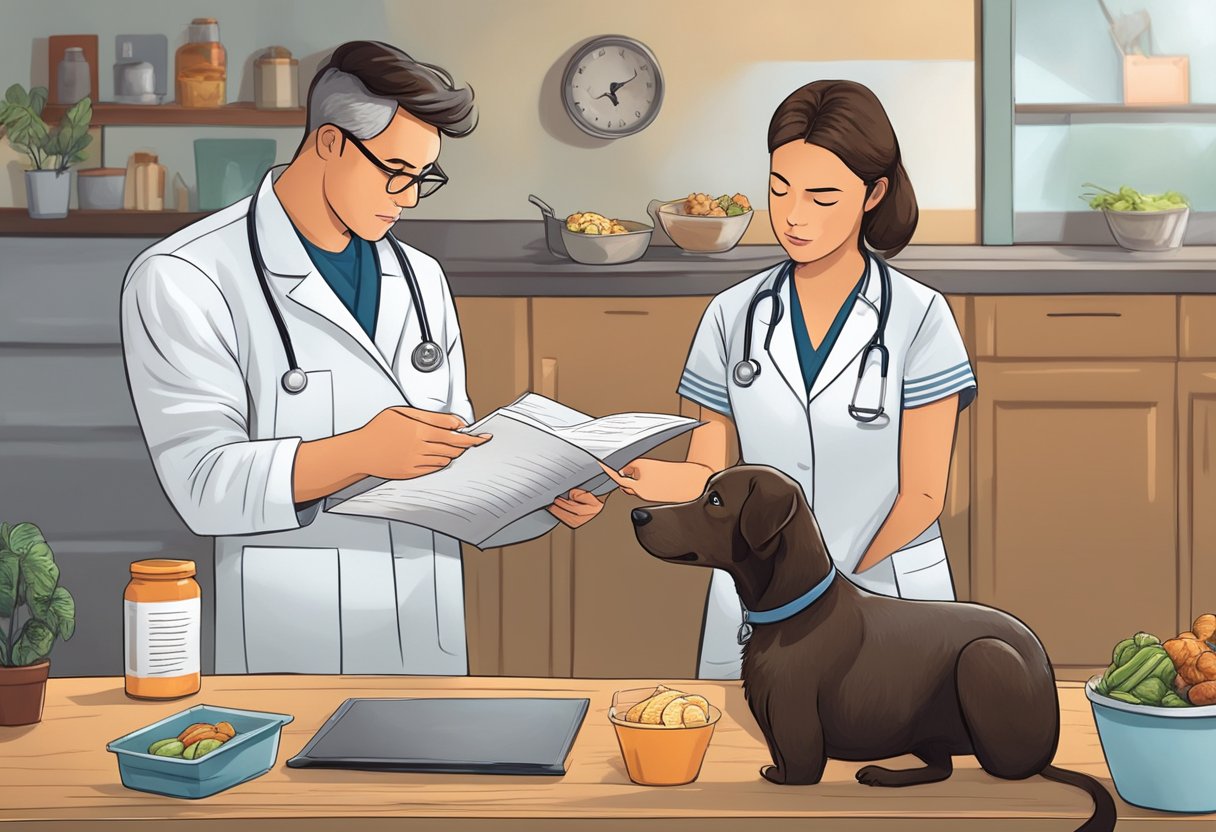
Proper nutrition is essential for a dog’s health and well-being. Recognizing their unique dietary needs helps owners make informed choices about their pets’ meals.
Nutritional Needs of Dogs
Dogs require a balanced diet that includes proteins, fats, carbohydrates, vitamins, and minerals. Each nutrient serves a critical function:
- Proteins: Vital for muscle development and tissue repair. Sources include meat, fish, and certain legumes.
- Fats: Provide energy and support cell function. Healthy fats come from fish oil and flaxseed.
- Carbohydrates: Offer a quick energy source. They are found in grains and vegetables.
- Vitamins and Minerals: Necessary for various bodily functions, from immune support to bone health.
The specific amounts of each nutrient can depend on breed, size, age, and health conditions. It’s essential for owners to consult with a veterinarian to ensure optimal nutrition.
The Role of Safe Foods
Understanding which foods are safe for dogs is critical to prevent health issues. Common safe food options include:
- Lean meats: Chicken and turkey provide excellent protein without unnecessary fat.
- Vegetables: Carrots, green beans, and sweet potatoes offer essential vitamins and minerals.
- Fruits: Blueberries and apples (without seeds) can be a nutritious treat.
Owners should always avoid feeding dogs potentially harmful items. Educating oneself about safe versus dangerous food options can empower pet owners to make healthier dietary choices. Regular consultation with a veterinarian can enhance understanding and ensure a balanced diet.
Risks of Feeding Dogs Human Foods
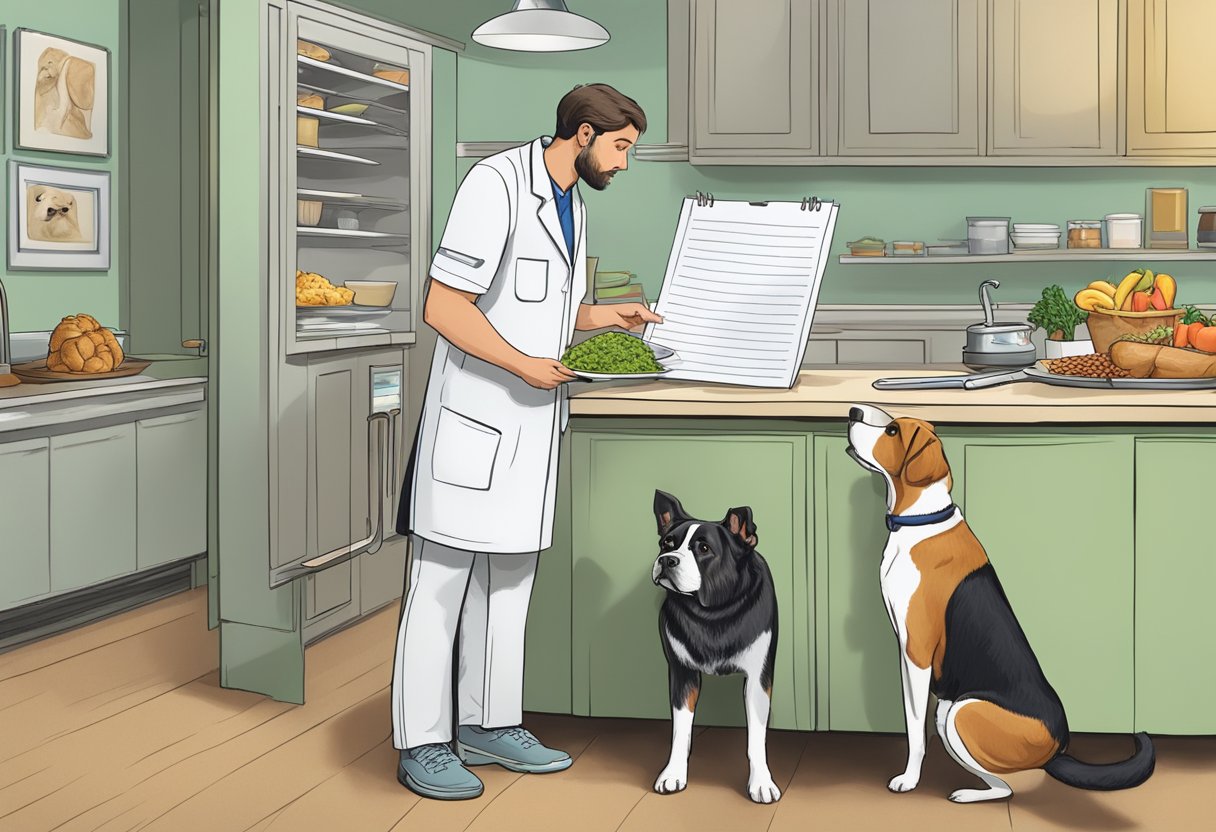
Feeding dogs human food can pose various health risks. It is crucial to recognize specific ingredients that may be toxic and the potential long-term effects on a dog’s health.
Toxicity Levels in Common Ingredients
Certain common foods are known to be toxic to dogs. For instance, chocolate contains theobromine, which can lead to vomiting, seizures, and even death. Grapes and raisins can cause acute kidney failure, even in small amounts. Foods like onions and garlic can damage red blood cells, leading to anemia.
Additionally, many processed foods contain xylitol, a sweetener that can cause insulin release, resulting in hypoglycemia. Symptoms can include lethargy, loss of coordination, and seizures. Awareness of these ingredients is essential for dog owners to prevent accidental poisoning.
Long-Term Health Implications
Feeding human foods can lead to chronic health issues in dogs. Regular consumption of fatty foods can result in pancreatitis, a severe inflammation of the pancreas that can be life-threatening. Symptoms often include vomiting, diarrhea, and abdominal pain.
Obesity is another significant concern. Foods high in calories may lead to excessive weight gain, which can contribute to joint problems, diabetes, and heart disease. Even seemingly safe human foods, when given in large quantities, can disrupt a dog’s balanced diet, leading to nutritional deficiencies. Monitoring portion sizes and food choices is crucial for maintaining a dog’s long-term health.

